Joshua P. Simon's Blog, page 30
June 8, 2012
Top 10 Marvel Villains






DC’s top ten villains were on Wednesday. Today I’m giving equal time to Marvel.
10. Thanos
[image error]
9. Kraven

8. Venom
[image error]
7. Apocalypse
[image error]
6. Loki
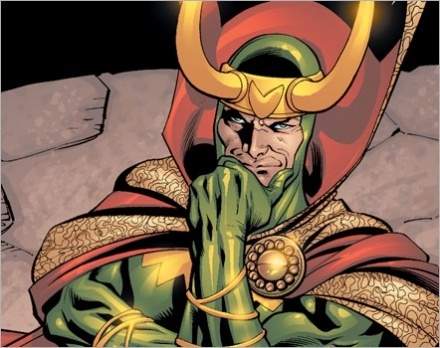
5. Abomination
[image error]
4. Red Skull

3. Dr. Doom
[image error]
2. Green Goblin
[image error]
1. Magneto

Honorable Mentions: The Lizard, Taskmaster, Galactus
Who else would you stick on this list?
Published on June 08, 2012 07:21
June 6, 2012
Top 10 DC Villains






A couple of weeks ago I did my Top 10 DC Heroes. Today, I’m doing my Top 10 DC Villains.
10. Brainiac
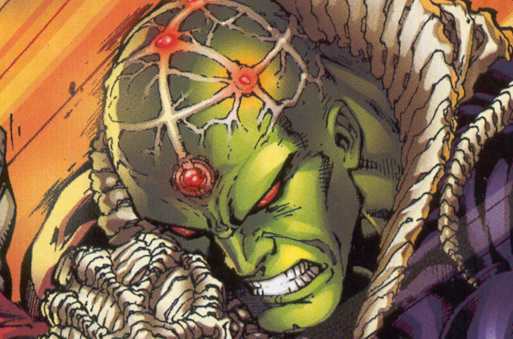
9. Mirror Master
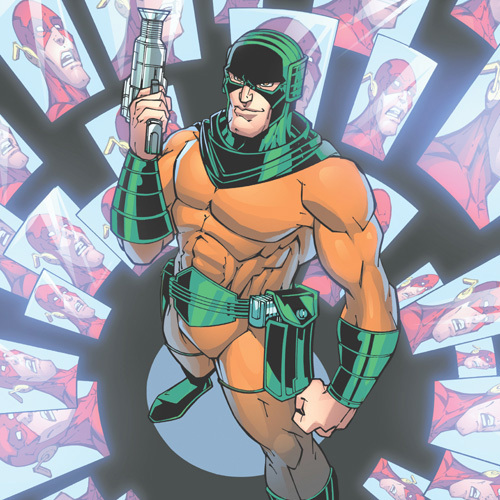
8. Sinestro
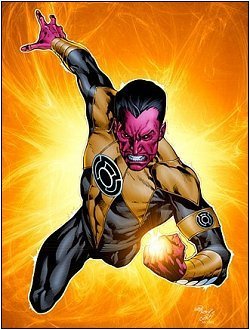
7. Ra’s Al Ghul
[image error]
6. Zoom
[image error]
5. Two-Face

4. Deathstroke

3. Darkseid
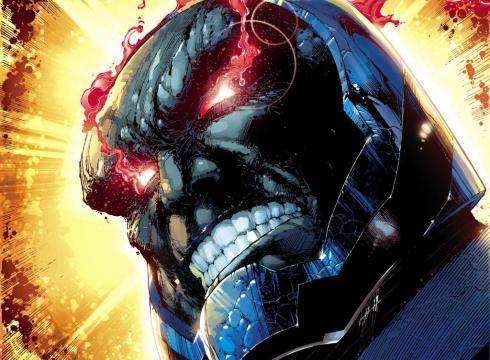
2. Lex Luthor

1. The Joker

Honorable Mentions: Bane, Doomsday, Black Manta, Captain Cold, Black Mask
Did I forget anyone?
Published on June 06, 2012 13:35
June 4, 2012
Music Monday - Iron Maiden (Paul Di'anno)






The first two Iron Maiden albums might be my favorite in their catalog. I love Bruce Dickenson and the band’s albums with him fronting, but when Bruce entered the lineup, the music lost a lot of the raw/edgy sound you hear on the first two albums. Plus, Di’anno has such a cool gritty voice.
Running Free (my favorite Maiden song)
Prowler
Wrathchild
Killers
Twilight Zone
Published on June 04, 2012 07:14
June 1, 2012
What Makes a Great Story? Endings
To see the previous posts in this series on what makes a great story, check out these links:
Openings - Part 1
Openings - Part 2
Description
Characters
Plot
Dialogue and Internal Thought
Prose
Humor
Romance
Politics
Action
In this series of blog posts, I’ve tried to touch on some of the things that I enjoy when reading a story and also what I try to think about when writing one. Hopefully, you’ve gotten something out of it. With that in mind, I’m ready to talk about endings.
Endings are a very tricky thing. Since it’s the last thing someone will read in your story/novel/series, it will probably be the thing that sticks out the most to them. Screw up the ending and you could wipe out the hundreds of pages of awesomeness that preceded it. Here are a few things I’ve learned from writing and reading endings:
Don’t Hold Back – This is especially true in the first book of a series. Writers have a tendency to want to save their coolest ideas until the very last book. Well, if you hold back everything, the ending of your first book is going to be a dud and no one will want to continue reading in order to get to those cooler parts you have planned for later. Besides, I’d be surprised if any writer couldn’t think of more cool things to do as the story progresses.
Now, don’t just throw things into an ending if they’re illogical or haven’t been properly set up. That would be just as bad as not having any bang to your ending at all. Bottom line: Learn to objectively look at your ending. If it doesn’t excite you, it won’t excite the reader.
Answer the questions asked – If you ask a question or present a conflict to the reader, there needs to be a payoff. If this is the first book in a series, the author doesn’t have to necessarily answer all of questions asked, but there should be some sort of temporary payoff/resolution. Otherwise, the reader may leave the story feeling jaded that you strung them along.
Introduce more questions – This is something that makes more sense in the earlier books of a series than in the last book. Wrap up some questions, but why not ask a few more to take their place? Keep the reader interested.
Don’t answer all the questions (yes, I know this is a bit contradictory to the above) – I’d argue that you shouldn’t answer all of the questions presented in the first book of a series. Make the reader want to immediately grab the next book.
However, I also think that it’s a good idea to leave some questions unanswered in the last book of a series. The author should definitely answer all the big questions and wrap up major storylines (i.e. the focus of the story). However, leaving a few minor questions unanswered or a few minor characters dangling is a good thing, in my opinion. It allows the reader to use their own imagination when filling in the blanks. Also, it can lead to great discussion with others who have read the same book.
Make sure your ending doesn’t take forever – To me a climax shouldn’t last half a book. The payoff should not seem tedious to read.
The aftermath needs to end quickly - The ending has happened. The major conflict is resolved. A good wrap up chapter or two is always a great idea and usually necessary. However, the worst thing you can do is drag this part out. End it as soon as you can. Otherwise, people will remember that rather than your awesome climax.Some of the people who I feel write great endings are Glen Cook, Paul Kearney, Steven Erikson, Brandon Sanderson, Larry Correia, and J.A. Corey.
So, who do you think pulls off a great ending?
Openings - Part 1
Openings - Part 2
Description
Characters
Plot
Dialogue and Internal Thought
Prose
Humor
Romance
Politics
Action
In this series of blog posts, I’ve tried to touch on some of the things that I enjoy when reading a story and also what I try to think about when writing one. Hopefully, you’ve gotten something out of it. With that in mind, I’m ready to talk about endings.
Endings are a very tricky thing. Since it’s the last thing someone will read in your story/novel/series, it will probably be the thing that sticks out the most to them. Screw up the ending and you could wipe out the hundreds of pages of awesomeness that preceded it. Here are a few things I’ve learned from writing and reading endings:
Don’t Hold Back – This is especially true in the first book of a series. Writers have a tendency to want to save their coolest ideas until the very last book. Well, if you hold back everything, the ending of your first book is going to be a dud and no one will want to continue reading in order to get to those cooler parts you have planned for later. Besides, I’d be surprised if any writer couldn’t think of more cool things to do as the story progresses.
Now, don’t just throw things into an ending if they’re illogical or haven’t been properly set up. That would be just as bad as not having any bang to your ending at all. Bottom line: Learn to objectively look at your ending. If it doesn’t excite you, it won’t excite the reader.
Answer the questions asked – If you ask a question or present a conflict to the reader, there needs to be a payoff. If this is the first book in a series, the author doesn’t have to necessarily answer all of questions asked, but there should be some sort of temporary payoff/resolution. Otherwise, the reader may leave the story feeling jaded that you strung them along.
Introduce more questions – This is something that makes more sense in the earlier books of a series than in the last book. Wrap up some questions, but why not ask a few more to take their place? Keep the reader interested.
Don’t answer all the questions (yes, I know this is a bit contradictory to the above) – I’d argue that you shouldn’t answer all of the questions presented in the first book of a series. Make the reader want to immediately grab the next book.
However, I also think that it’s a good idea to leave some questions unanswered in the last book of a series. The author should definitely answer all the big questions and wrap up major storylines (i.e. the focus of the story). However, leaving a few minor questions unanswered or a few minor characters dangling is a good thing, in my opinion. It allows the reader to use their own imagination when filling in the blanks. Also, it can lead to great discussion with others who have read the same book.
Make sure your ending doesn’t take forever – To me a climax shouldn’t last half a book. The payoff should not seem tedious to read.
The aftermath needs to end quickly - The ending has happened. The major conflict is resolved. A good wrap up chapter or two is always a great idea and usually necessary. However, the worst thing you can do is drag this part out. End it as soon as you can. Otherwise, people will remember that rather than your awesome climax.Some of the people who I feel write great endings are Glen Cook, Paul Kearney, Steven Erikson, Brandon Sanderson, Larry Correia, and J.A. Corey.
So, who do you think pulls off a great ending?
Published on June 01, 2012 11:22
May 30, 2012
Movie Review - The Avengers






Yes, I know I’m late to the party, but needing a sitter to go out and catch a movie with the wife will do that to you. Regardless, I finally saw The Avengers last weekend and thought it was a great (but not perfect) flick. I know a lot of people are saying that this is the greatest comic book movie ever made, but I’ll have to politely disagree with them. It’s probably the best Marvel universe superhero movie (Captain America and Iron Man are right on its heels). However, Batman Begins and The Dark Knight are both better films (and if The Dark Knight Rises is as good as the trailers appear, that will be pushed ahead of The Avengers as well). I’m not sure where I’d put Hellboy and The Incredibles in my ranking, but both of those movies would also make my top ten list of comic book films.
Anyway, back to The Avengers. Below are my thoughts. There will be some spoilers.
Pros:
Scarlett Johansen (Black Widow) - She really came across as a stronger character than her cameos in Iron Man. Good acting/backstory. Really showed why she was made a member of the team.Captain America - Evans continues to be perfectly cast as Steve Rogers. I loved how in the end everyone deferred to him as the leader of the group and he came up with the tactics/strategy for the situation.Bruce Banner/The Hulk - As others have said, this was the best version of the characters in film. Norton was good in the role, but Ruffalo was great. I also thought it was a huge plus to actually give the Hulk some personality and lines which is consistent to his portrayal in the comics.Iron Man - What can I really say about Downey that hasn’t already been said? Another good performance.The fight/battle scenes - Throughout the movie, they were awesome from an entertainment standpoint and also in that they played off of the rivalries present in the comics. Whedon did a good job showcasing each character’s strengths and weaknesses.Lots of cool nuggets/phrases/references dropped throughout the film that comic fans like me enjoyed (i.e. Agent Coulson’s girlfriend).The extra scene of Thanos at the end was nice. I only hope that he is actually the main villain of the third film and we just see him pulling strings in a second film to set up his big appearance. Otherwise, I’m not sure where you go after Thanos if you use him in the second film.
Cons:
The opening sequence - It really soured my opinion immediately on the film. The entire scene just didn’t really work for me: bad dialogue, illogical character decisions, etc. I remember thinking, “Wow, please tell me THIS isn’t what people were going crazy over.” Because of this, it took awhile for me to actually start enjoying the film and it probably skewed other parts of the movie because I kept thinking about how bad the opening had been.Dialogue - Ok, I know Joss Whedon is considered a god in geek culture and I do like a lot of his work. However, I’ve always felt that for every 2-3 great moments he has, there is one really cheesy moment that doesn’t work. The trend continued here. A couple of really awesome bits of character exchanges and momentum would be derailed by trying to force humor into a situation that didn’t need it. As a result, the execution felt awkward.Overall cheesiness - I know this is definitely meant to be a more “fun” movie which I’m fine with. However, certain scenes/moments didn’t come across well and often brought me down from a great high. For example, we see this unreal battle at the end of the movie which ends with Loki crawling away. He turns and we see the Avengers standing over him in their movie poster poses (blah). This only gets worse when Loki makes a sheepish joke about wanting a drink. Ugh, that quick scene almost bothered me as much as the opening sequence.Hawkeye - I never was a huge fan of his in the comics, but I can understand his usefulness as he was really The Avenger’s leader/tactician when Captain America wasn’t around. In the film, they make him a spy which seems redundant based on Black Widow’s character. So, he’s basically relegated to someone with great eyesight. It would have been much cooler to have The Wasp or Ant-Man in his place (both founding members of The Avengers). He just seemed like a filler character.Thor - I like the character and Hemsworth is good in the role. However, it felt like he got lost in the superhero shuffle.
Despite several missteps, The Avengers is still a great movie that’s worth seeing.
8/10
Published on May 30, 2012 11:25
May 28, 2012
Music Monday - The Yardbirds






Great band that was ridiculously influential in the Hard Rock Pantheon. Any band that boasted Eric Clapton, Jeff Beck, and Jimmy Page as guitarists has to be good.
Heart Full of Soul
Smokestack Lightning
I’m a Man
Train Kept A Rollin
Published on May 28, 2012 11:01
May 23, 2012
Writing Update






It’s been a few months since my last writing update so I’d thought I’d take a minute to chime in and talk about what I’ve been up to.
Steel and Sorrow: Book Two of the Blood and Tears Trilogy – This went to Betareaders a couple of weeks ago. I’ve already gotten some good feedback and positive reactions which is great. I’m not expecting to get all the comments in until late June so I’ll be working on other projects in the meantime. Then I’ll make my final pass and send the MS to my editor by July 15th.Break the Chains: A Blood and Tears Novella – I managed to outline and write the rough draft of this since turning in Steel and Sorrow to Betareaders. This was one of the harder things I’ve written. At one point, I had to stop and rewrite a large part of the beginning and completely change my originally planned ending. But the first draft is done at around 13K words. I’m taking a couple days off before I begin revising it so I can approach it with a fresher perspective. My goal is to get it to a decent state as soon as possible so I can get it to Leah (my alphareader) for her initial reaction.Various Short Stories – While taking those days off from Break the Chains, I’m polishing a few unrelated short stories. Two will be submitted to different contests. The third (Horror Flash Fiction), I’m going to hold onto for a bit and then later submit to online ezines.
Those are my three most immediate goals right now. Besides getting Steel and Sorrow to my editor, I’ll spend the next two months or so outlining (and probably starting) Book Three of the Blood and Tears Trilogy (untitled), get Break the Chains ready to go to Betas as soon as I can, and hopefully write another short story.
What have you been up to?
Published on May 23, 2012 05:48
May 21, 2012
Music Monday - Rob Halford






Since I did Bruce Dickinson’s solo work last week, I thought I would do a Music Monday on my favorite Heavy Metal singer, Rob Halford of Judas Priest. Just like last week, there are a lot of songs below since it’s so hard to narrow down his solo work.
You may notice that I didn’t include any songs from his band Fight. Those will be covered on a future blog post.
Resurrection
The One You Love to Hate (duo with Bruce Dickinson)
Silent Screams
Slow Down
Golgotha
Trail of Tears (A lot slower, but great all the same)
Til the Day I die (Awesome Bluesy song)
The Mower
[image error]
Published on May 21, 2012 06:11
May 18, 2012
What Makes a Great Story? Action






To see the previous posts in this series on what makes a great story, check out these links:
Openings - Part 1
Openings - Part 2
Description
Characters
Plot
Dialogue and Internal Thought
Prose
Humor
Romance
Politics
Writing a good action/battle/fight scene can be pretty hard. It seems like the line between too much and too little, too descriptive and not descriptive enough, too violent and not violent enough, etc., is a hard one to balance. Like romance, politics, and many other areas of creating a good story, some authors are stronger with this aspect of writing than others. And like those other areas, just because it may be a weakness for a writer, it shouldn’t be a reason for the author to avoid action all together.
Here a few things I both look for when reading and try to portray when writing action.
Make it Personal – Whether you’re writing about a general watching a struggle from afar, a soldier on the front lines, a guy jumped in an alley, or a young child running from a Doberman, it needs to be personal. I want to know what that person is going through physically, mentally and emotionally. I want to know what they see, hear, and smell.Focus on the characters – At first glance, this may seem redundant to the point above, but it’s not. The above point deals with that moment in time. Within that moment characters still must act as themselves. Everything they experienced before the action scene factors into their behavior during the moment. And the action scene should also affect their behavior/motivations afterward in the story.Think about all the senses – It's easy for an author to only write what the character sees or even hears. However, don’t neglect smell or even taste. I have to remind myself of those senses from time to time. The taste of blood or the smell of someone voiding their bowels in fear has a much greater impact on the reader (and character) than just seeing those things.Leave the reader wanting more – Like most writers I had a tendency early on to give too many details. I think I've improved on cutting down the unnecessary elements. Details are good, but shouldn't be overdone. Otherwise, the fight can feel mechanical and void of emotion. On a grander scale, if you have the opportunity to tell a fight from multiple POVs, then use it. That gives the battle a greater sense of scope and urgency. Remember, we want the reader to wish we hadn’t stopped so soon, not to get bored or numb to the actual action.
The authors I think handle action the best are as follows (in order):
Paul Kearney – Land or sea, no one does a military battle better than Kearney.
Joe Abercrombie – Excellent at showing the personal stakes involved in any battle. You really get a feel of what each character is going through as the events unfold.
Larry Corriea – Larry is actually the only one on this list who hasn’t released any epic fantasy yet and instead sets his fantastical tales in a modern setting. Be prepared for the best gunfights you’ve ever read in your life.
Steven Erikson – Grand epic battles (sometimes lasting over a hundred pages) using explosives, swords, magic, spears, etc. or a personal duel up close and personal. No matter the setting, Erikson seems to get it right.
Ian Esslemont – He writes in the same world as Erikson and his battles have a similar feel to them.
Who do you feel does a great job of writing action (regardless of genre)?
Published on May 18, 2012 07:15
May 16, 2012
Top 10 Favorite Marvel Characters
Right away I notice that this top 10 lacks any female characters (though they make my honorable mentions). I’ll chalk this up to being less familiar with the Marvel universe than DC. The female Marvel characters I’m most familiar with (i.e. Jean Grey, Black Cat, etc.), I just don’t care for.
My Top 10 Marvel heroes
10. Cable
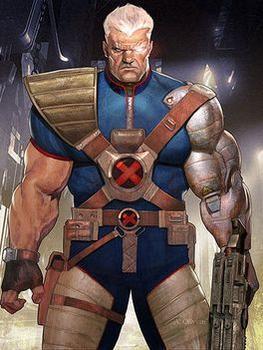
9. MoonKnight

8. Deadpool

7. Wolverine
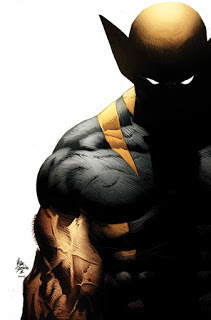
6. Colossus
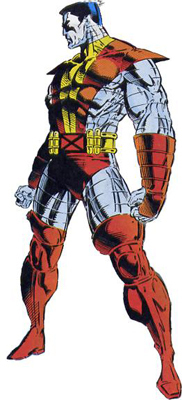
5. Captain America
4. Thor

3. The Hulk
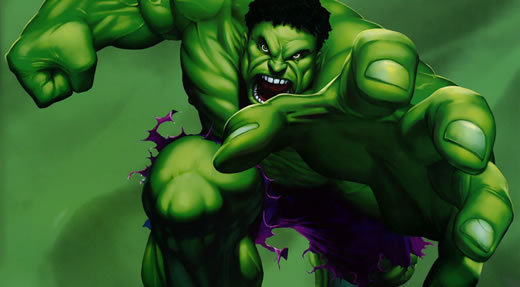
2. Black Panther
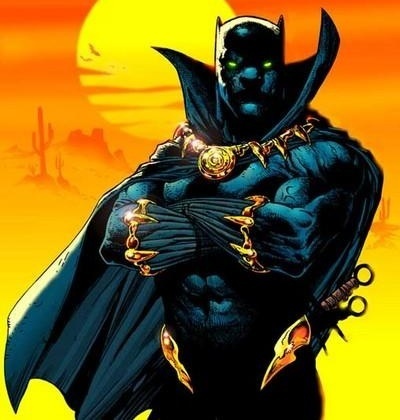
1. Spiderman

Honorable Mentions: Gambit, Rogue, Emma Frost, Luke Cage, Ms. Marvel, and She-Hulk
My Top 10 Marvel heroes
10. Cable

9. MoonKnight

8. Deadpool

7. Wolverine

6. Colossus

5. Captain America
4. Thor

3. The Hulk

2. Black Panther

1. Spiderman

Honorable Mentions: Gambit, Rogue, Emma Frost, Luke Cage, Ms. Marvel, and She-Hulk
Published on May 16, 2012 06:49



